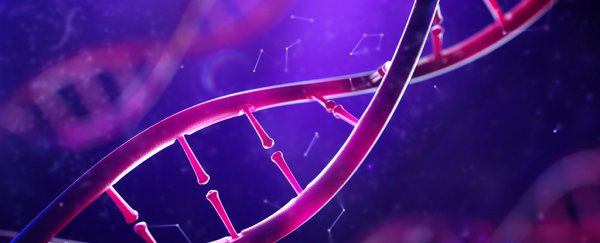The nature-versus-nurture argument of intelligence just got a lot more complicated with the discovery that the environment can modify the expression of a key gene in the brain, affecting intelligence far more than we previously thought.
Such a finding may not come as a surprise if you remember that numerous genes influence our IQ and stressful experiences can lock and unlock genes in our brains. Yet having hard evidence of the link will no doubt stir debate on just what it means to be "smart".
Researchers from the Charité - Universitätsmedizin Berlin analysed the characteristics of a number of genes among a group of healthy adolescents, and compared the results with intelligence scores and various neurological traits.
Ideally, the team would have cast a wide net and looked at the whole genome.
But with barely 1,500 subjects in their sample, they had to pull their focus in on a smaller handful of genes that deal with reward anticipation in the decision-making part of ours brains, the corpus striatum.
The researchers found a strong relationship between the epigenetic modifications of one particular gene and general IQ, suggesting our experiences not only affect the wiring of our brain, but the very way our genes function at a basic level.
Epigenetics has become big news in genetics in recent years, as it allows us to explore the fascinating link between genetic functions and environmental change.
For example, in times of high stress, such as a persistent threat of violence or poor nutrition, physiological changes in the organism can tweak your genes by adding or removing a chemical group that effectively locks them down or opens them up.
These edits can also go the other way. It's possible that showing infants ample affection, such as frequent cuddles, just might modify the expression of their genes in the same way.
In turn, such changes can subtly influence a range of characteristics that can have drastic knock-on effects, altering the course of everything from how your immune system functions to how much you earn.
In this case, the team discovered that where a gene named DRD2 had an epigenetic lock attached, IQ rates fell.
The gene is usually responsible for building part of a receptor for the neurotransmitter dopamine. Inheriting a broken or mutated version is usually bad news, leading to various neurological and muscular disorders.
But if modified in isolated spots of the brain, such as the striatum, it could have less profound effects, limiting communication involved with planning and motivation.
The researchers found further evidence for this potential link - tissue in this area of the brains of individuals with modified DRD2 wasn't quite as dense as for people without this epigenetic tweak.
While the changes are there, it's impossible to say exactly what made them happen in the first place. Stress during childhood is known to affect cognition later, though how much comes down to neurological changes and how much might be epigenetic will be a challenge to tease apart.
It's a stretch to say any single epigenetic change destines us to a life of wealth, illness, or – in this case – intellectual superiority; but small nudges could have some far reaching effects.
Unlike other environmental influences, epigenetic changes in the right tissues can hypothetically be passed onto future generations.
"Environmentally-induced gene activity now joins the ranks of other factors known to influence IQ test performance, such as poverty and genetic constitution," says the study's first author, Jakob Kaminski.
"In this study, we were able to observe how individual differences in IQ test results are linked to both epigenetic changes and differences in brain activity which are under environmental influences."
Intelligence testing and controversy have long gone hand-in-hand, often with valid reason. Questionable tools, inappropriate interpretations, and its role in racial vilification have left us with a bad taste in our mouth when it comes to asking if human intelligence is inherited, moulded by upbringing, or the result of effort and diligence.
It's clearly a complicated topic, but as the evidence piles up, we're developing a clearer picture of the ways our brains work to learn and solve problems.
This research was published in Translational Psychiatry.
